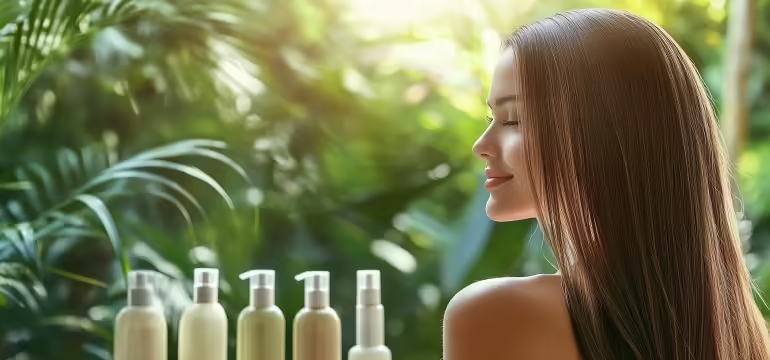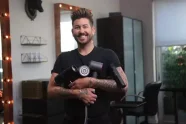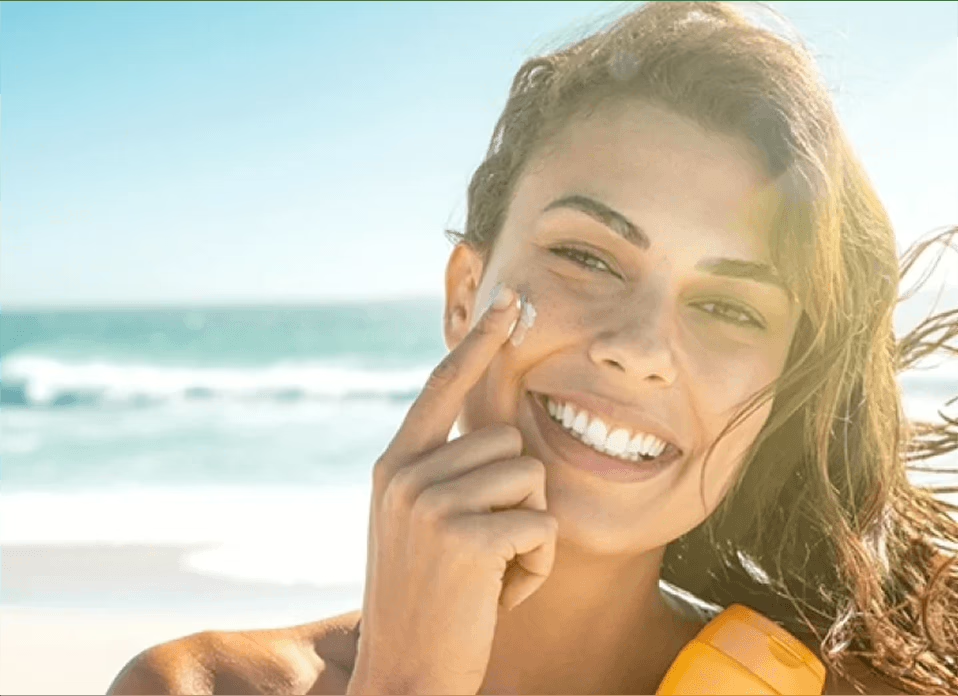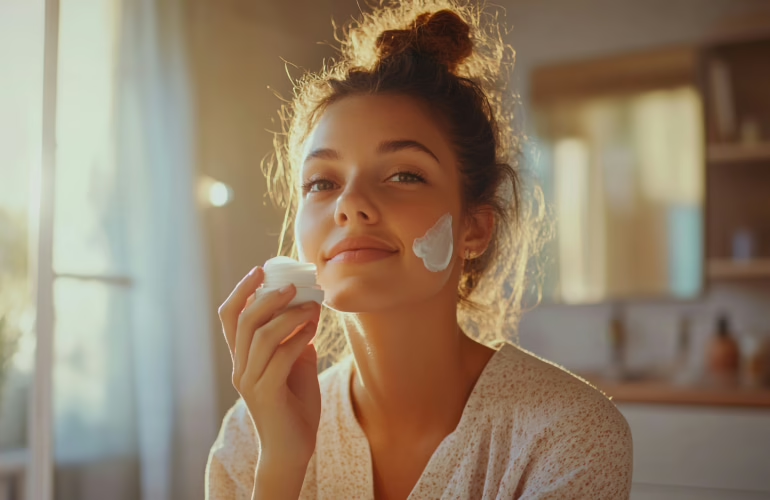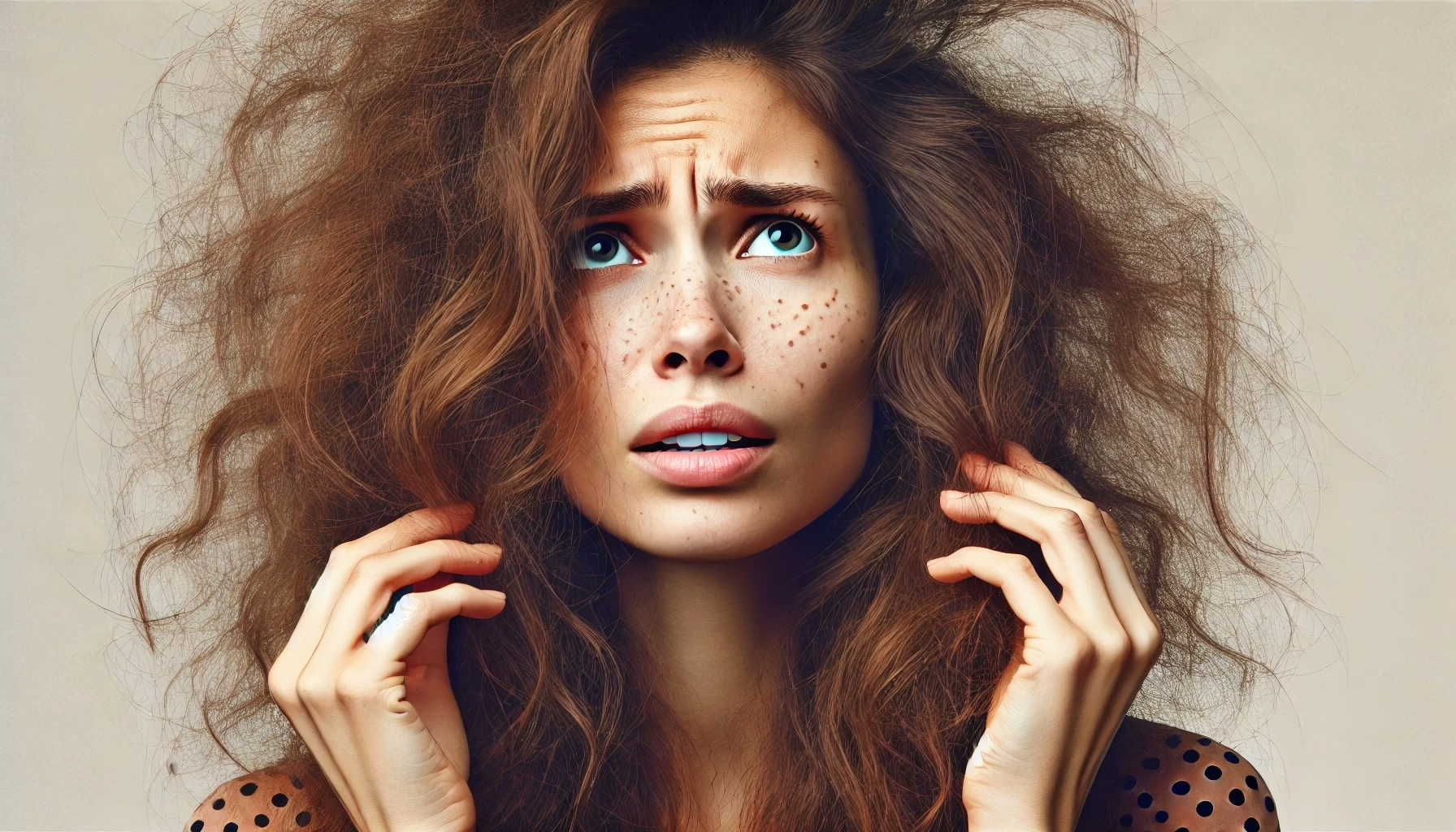Advertising Disclosure
Best Vitamins for Hair Growth: What You Need to Know in 2024
Vibrant locks are a sign of overall well-being. However, getting strong hair often needs more than just good genes. Your body needs vitamins — substances that play a crucial role in nourishing your follicles. These vitamins provide essential nutrients that support:
- Growth
- Strength
- Shine
Many factors contribute to great hair, that range from genetics to lifestyle. However, taking the best vitamins for hair health can make a significant difference.
In recent years, science has evolved. It has led to new discoveries about promoting hair growth. 2024 brings exciting changes in our understanding of which compounds are great for growing hair.
Our article will delve into the latest research. We will explore the essential products that can help you achieve your goals. We will go from biotin and vitamin D to iron and zinc. We’ll uncover the science behind these compounds. And we will take a look at how they work to support your body.
Essential Vitamins for Enhancing Hair Growth
A balanced diet rich in essential products is crucial for supporting healthy hair growth. Many good foods contribute to health. However, certain ones stand out for their significant impact on follicles and overall vitality. So, which vitamins are good for hair growth? Let’s explore some of the most crucial ones that known to benefit your body:
- Biotin. This one is also known as B7. This hair vitamin plays a crucial role in many metabolic processes. It includes the production of keratin. This is the protein that forms the structure of hair. By supporting keratin synthesis, this product helps strengthen hair. It reduces breakage and promotes thicker, healthier ones. Also, it’s involved in the metabolism of fatty acids. Those are essential for maintaining a healthy scalp environment.
- Vitamin C. This vitamin, which helps prevent hair loss, is an antioxidant. It protects cells from damage. This issue is usually caused by free radicals. This product also plays a crucial role in collagen synthesis. It’s a protein that provides structural support to follicles. It strengthens the connective tissues surrounding follicles. It reduces shedding and promotes vibrant growth. Moreover, this substance is involved in iron absorption. It’s essential for carrying oxygen to follicles and supporting their metabolic needs.
- Vitamin D. This one is often associated with bones. However, vitamin D and hair loss also have something in common. This one plays a role in hair growth. Studies have shown a link between vitamin D deficiency and lock loss. Vitamin D receptors are found on follicles. It suggests that this product may directly influence their growth and development. Also, it helps regulate immunity. It can impact hair’ well-being. Try to keep adequate levels. Then, you can support vibrant growth and reduce the risk of loss.
The Role of Biotin in Hair Growth
This compound has garnered significant attention. It’s a potential solution for loss and thinning hair. More research is needed to fully understand its mechanisms. However, several studies have shown a positive association between biotin addition and boosted well-being.
At the cellular level, this hair loss vitamin deficiency product is involved in the metabolism of amino acids. They’re the special building blocks of proteins. For example, they help create keratin. Biotin provides the necessary nutrients for keratin synthesis. It helps strengthen hair and it reduces breakage. Also, biotin may support the well-being of follicles. It promotes their growth and development.
It’s important to note that it can be beneficial for some individuals with hair’ loss. However, this product may not be a miracle cure for everyone. The underlying causes of hair’ loss vary widely. And biotin may not be effective in addressing all cases. If you’re experiencing hair loss, it’s advisable to consult with a doctor. It’s to determine the underlying cause and discuss appropriate curing.
Vitamin D: Link Between Hair Loss and Deficiency
Vitamin D deficiency has been linked to many conditions. It also includes hair loss. Studies have shown that people with low vitamin D levels are more likely to experience thinning and shedding. This connection may be due to several factors:
- Follicle cycling. This good vitamin for hair plays a role in regulating the growth cycle. It consists of three phases. They are anagen (growth), catagen (transition), and telogen (resting). Deficiency may disrupt this cycle. It leads to premature shedding.
- Immunity function. These compounds help regulate the immune system, which can impact overall health. An imbalanced immune system may contribute to loss. It’s by attacking follicles or interfering with their growth.
- Scalp. Compounds may also influence the scalp. It’s essential for vibrant growth. A deficiency can lead to a dry, flaky scalp. This can create an environment that is less conducive to growth.
Fortunately, there are several ways to naturally boost your compound levels. Spending time in sunlight is the primary source of this vital compound.
However, the amount of sunlight exposure needed can vary. It depends on some factors. They are skin tone and geographic location. If you’re unable to get enough sunlight exposure, you can also consider taking a good vitamin D addition for hair. It’s important to consult with a doc. It’s to determine the appropriate dosage for your unique needs.
In addition to its pros for well-being, vitamin D is essential for overall well-being. It supports bones, immune function, and mood regulation. Ensure you have adequate vitamin D levels. Then, you can not only promote vibrant strands growth. You can also boost your overall well-being and quality of life.
Choosing the Right Hair Growth Supplements
A balanced diet provides essential nutrients for vibrant hair. However, supplements for healthy hair can offer targeted support. It’s especially if you have specific dietary deficiencies. Or it can be if you are experiencing lock loss. When choosing hair growth supplements, consider the following factors:
- Formulation. Look for products that contain a combination of compounds, minerals, and amino acids. They must be usually known to support lock growth. They are biotin, vitamin C, D, iron, zinc, and keratin. Avoid products with excessive amounts of fillers or artificial ingredients.
- Concentration. Ensure the product provides adequate dosages of each nutrient to be effective. Refer to recommended daily intakes. And consult with a doc. It’s in case you have specific dietary needs or concerns.
- Bioavailability. The ability of your body to absorb and use nutrients from a product is crucial. Choose products that use bioavailable forms of compounds and minerals. They are chelated minerals or liposomal vitamins.
- Ingredient synergies. Some nutrients and vitamins for your hair work together. It’s to enhance their benefits for growth. Look for products that combine ingredients with complementary properties. They are biotin and zinc, or vitamin C and iron.
Tips for reading labels:
- Check for expiration dates.
- Look for certifications like GMP (Good Manufacturing Practices). It’s to ensure quality control.
- Read the ingredient list carefully. It’s to find any allergens or potential sensitivities.
Best Practices for Supplementing with Multivitamins
Multivitamins for hair loss can be a convenient way to ensure you’re getting many essential nutrients for your organism. However, it’s important to choose a quality product. And follow best practices for additions:
- Timing. Ideally, take your multivitamin with a meal. It’s to enhance absorption. Some nutrients may be better absorbed when taken with vitamin C. For example, you can combine it with iron.
- Diet. Food additions can be helpful for you. However, they can’t replace a healthy diet. Focus on whole, unprocessed foods. They’re rich in compounds and minerals.
- Medication interactions. If you’re taking any meds, consult with your doc. Do it before starting a new product. Some multivitamins for hair loss and minerals can interact with meds. It potentially affects their efficacy or causes side effects.
Warning Signs of Over-Supplementation
Additional supplements can be beneficial for overall health. However, excessive compounds and minerals can have negative consequences for hair. Common signs of overdose include:
- Lock loss. Ironically, excessive intake of certain vitamins, such as A, can lead to lock loss.
- Digestive issues. Overuse can cause digestive problems such as nausea, diarrhea, or constipation.
- Skin problems. Excess minerals can contribute to skin issues like acne, rashes, or discoloration.
- Other well-being problems. In severe cases, overuse can lead to more serious problems. The vitamins to grow hair can lead to liver or kidney damage.
Guidelines for safe use:
- Follow recommended dosages of vitamins for the hair. Adhere to the recommended daily intake for each nutrient.
- Consult with a doc. If you have any concerns about the product, consult with a doctor or registered dietitian.
- Listen to your body. Pay attention to any signs that may indicate overuse.
Remember, supplements can be a valuable tool for promoting healthy hair. However, they should be in conjunction with a good lifestyle, balanced diet, and proper hair care practices. If you’re experiencing significant lock loss or have underlying conditions, consult with a doc.
Natural Sources of Hair-Friendly Vitamins
Dietary supplements can be a convenient way to obtain essential vitamins for hair health. However, incorporating natural sources into your diet offers many pros. Here are some foods rich in hair-beneficial compounds.
Biotin:
- Foods. Eggs, liver, nuts, seeds, and whole grains
- How to incorporate. Enjoy scrambled eggs for breakfast. Try to add nuts and seeds to salads or yogurt. Also, use whole grains like brown rice or quinoa in your meals.
Vitamin C:
- Foods. Citrus fruits, berries, kiwi, bell peppers, and broccoli
- How to incorporate. Start your day with a glass of orange juice, add berries to your yogurt or cereal, or enjoy a colorful salad with bell peppers and broccoli.
Vitamin D:
- Foods. This one of the best vitamins for hair loss is in fatty fish (salmon, mackerel, tuna), fortified dairy products, egg yolks, and mushrooms exposed to sunlight
- How to incorporate. Include fatty fish in your meals twice a week, opt for fortified milk or yogurt, and enjoy sunny days outdoors.
Iron:
- Foods. Red meat, poultry, fish, spinach, lentils, and fortified cereals
- How to incorporate. Enjoy lean protein sources like chicken or fish. Add spinach to your salads or smoothies. And choose fortified cereals for breakfast.
Zinc:
- Foods. Oysters, red meat, poultry, beans, nuts, and seeds
- How to incorporate. Include lean protein sources in your meals, add beans to your soups or salads, and enjoy a handful of nuts or seeds as a snack.
Advantages of obtaining healthy hair vitamins through food:
- Whole-food nutrition. Foods provide many nutrients beyond just vitamins. It includes fiber, antioxidants, and other essential compounds that support overall well-being.
- Better absorption. Minerals from food are often more readily absorbed by your body compared to additions.
- Reduced risk of toxicity. Unlike addition, it’s difficult to overdose on minerals from food, reducing the risk of adverse effects.
- Enhanced flavor and satisfaction. Incorporating nutrient-rich foods into your diet can add variety, flavor, and satisfaction to your meals.
Prioritize whole, unprocessed foods. Those are rich in hair-friendly compounds, you can nourish your hair from the inside out and support its natural growth and vitality. Remember, a balanced diet is key to achieving optimal hair.
Emerging Research and Future Trends in Hair Health
Research progresses. So, we can anticipate several trends and new recommendations for vitamins to grow hair:
- Microbiome-targeted supplements. Products made to support a healthy scalp microbiome may become more prevalent. These ones could contain probiotics, prebiotics, or specific nutrients. Those promote the growth of beneficial bacteria.
- Personalized recommendations. With advancements in nutrition, we may receive tailored recommendations for hair care vitamins. It’s based on our genetic makeup and metabolic profile.
- Phytochemical-based supplements. Products containing phytochemicals with hair growth pros, such as curcumin, resveratrol, or green tea extract, may gain popularity.
- Stem cell-derived hair growth treatments. If stem cell therapy proves to be safe and effective, it could become a viable option for individuals with severe lock loss.
- Combination approaches. Future hair care recommendations may emphasize a combination of dietary factors, supplements, and lifestyle practices to promote optimal hair health.
In conclusion, genetics and lifestyle play significant roles in well-being. However, using the right products can make a big difference. Understand the pros of vitamins like biotin, vitamin C, D, iron, and zinc. And use them with your diet or supplement routine. Then, you can take a proactive approach to achieving vibrant and luscious hair.

